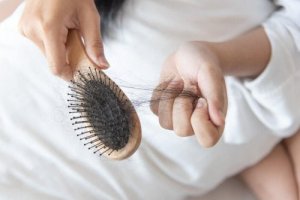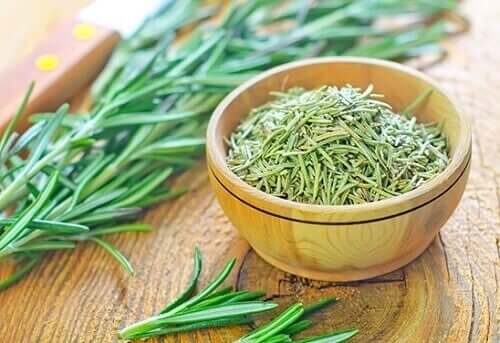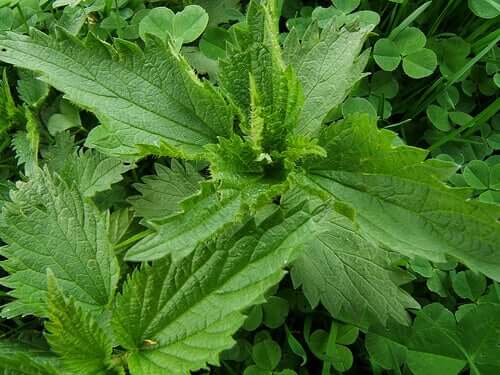Reverse Hair Loss with 3 Home Remedies

Finding a way to reverse hair loss naturally is the dream of many people who still do not know the cause of their problem.
Sometimes, hair loss also has to do with the use and abuse of bad products that damage your hair fibers. For example, using a straightener every day or using shampoos that contain unhealthy ingredients isn’t good for your hair.
Although there are some times of the year, such as autumn, when hair loss is much more accentuated and it’s normal, if the problem persists over time, you need to find out what may be causing the hair loss.
In order to detect the cause of hair loss, you must review your lifestyle and, above all, your diet.
And keep in mind that if hair loss is accompanied by other discomforts and symptoms, you need to consult a doctor.
In case it’s caused by a disease, it’s believed that certain home remedies can be used to reverse hair loss.
Home Remedies to Reverse Hair Loss
According to beliefs, natural products are a valid resource to take care of hair and reverse hair loss, since they seem to be less aggressive with the scalp.
Many people combine their usual hair care products with a home remedy to get the results they want.
Important note: If you have sensitive skin or a particular condition, it’s essential that you consult a dermatologist before starting to use natural remedies. In this way, adverse reactions can be avoided.
1. Rosemary

According to the article, Ethnobotanical study of medicinal plants, rosemary is a plant that can help reverse hair loss because it stimulates blood circulation in your scalp.
You can follow the following steps to prevent your hair from falling out:
- Make a tea by adding some rosemary leaves to a saucepan of water.
- Once the tea is ready, let it rest until the water is warm.
- Then, strain the rosemary and apply it like a tonic by massaging it into your scalp.
- Finally, wash your hair. Also, it’s important to do this at least once a week to start seeing results.
You might be interested: Discover the Incredible Uses and Benefits of Rosemary
2. Nettle

Nettle is another option to reverse hair loss, according to this study, Habitats and traditional uses of the species Urtica I. It has anti-inflammatory properties that can prevent hair loss.
Sometimes, because of stress, your scalp could develop seborrheic dermatitis. This causes inflammation, itching and hair loss. Nettle can be an excellent option in these cases. Let’s see how you can use it:
- First, make a nettle tea.
- Once you’ve let it rest, strain out the nettle and apply it to your scalp.
- Then, gently massage it and let it sit.
- Finally, you can apply this remedy twice a week.
Note: Be very careful when handling nettle leaves. They have small hairs that are irritating and can cause hives. Once you heat them in water, this effect disappears.
You might like: How to Use Nettle and Maximize Its Power
3. Aloe Vera

Aloe vera is one of the last remedies that can help reverse hair loss. It moisturizes your scalp, heals your hair, and strengthens hair fibers. Without a doubt, it’s essential to always have an aloe vera plant at home because you can use them in so many different ways. In this case, we recommend using it as follows:
- Cut off a leaf from the aloe vera plant.
- Then, split it in half and rub the gel all over your scalp.
- Finally, massage it into your scalp and allow it to set.
- You can do this once a week.
If you don’t want to apply aloe vera like this, you can remove the gel with a spoon, add it to a container, and mix it. Then, carefully apply it to your scalp.
Tips to Reverse Hair Loss
Although these home remedies can help you reverse hair loss, it’s important to go to your doctor. If you have seborrheic dermatitis or alopecia, your doctor will help you find the best treatment for your specific problem.
In addition to using your doctor’s treatment, you can use the remedies we showed you. However, it’s important to prioritize the advice from your doctor. Results from home remedies can show up very slowly. That’s why it’s so important to be consistent when using them.
Do you suffer from significant hair loss? We hope this article has helped you and has given you some natural alternatives that you can use along with the treatment from your doctor.
All cited sources were thoroughly reviewed by our team to ensure their quality, reliability, currency, and validity. The bibliography of this article was considered reliable and of academic or scientific accuracy.
- Alejandro, M., Alberto, M., Gama Campillo, L. M., & Mariaca Méndez, R. (2010). El uso de las plantas medicinales en las comunidades Maya-Chontales de Nacajuca, Tabasco, México. Polibotánica, (29), 213-262.
- Avila-Sosa, R., Navarro-Cruz, A. R., Vera-López, O., Dávila-Márquez, R. M., Melgoza-Palma, N., & Meza-Pluma, R. (2011). Romero (Rosmarinus officinalis L.): una revisión de sus usos no culinarios. Ciencia y mar, 15(43), 23-36.
- García Bacallao, Lourdes, Rojo Domínguez, Delia Mercedes, García Gómez, Luis Vicente, & Hernández Ángel, Maureen. (2002). Plantas con propiedades antiinflamatorias. Revista Cubana de Investigaciones Biomédicas, 21(3), 214-216. Recuperado en 24 de abril de 2019, de http://scielo.sld.cu/scielo.php?script=sci_arttext&pid=S0864-03002002000300012&lng=es&tlng=es.
- López Pupo, Natacha, Tablada Robinet, María Elena, Jacas García, Caridad, Jacas Portuondo, Ana Lucía, & Solano Pérez, Marhyan. (2018). Terapias tradicional y natural combinadas en pacientes con alopecia areata. MEDISAN, 22(6), 416-423. Recuperado en 24 de abril de 2019, de http://scielo.sld.cu/scielo.php?script=sci_arttext&pid=S1029-30192018000600005&lng=es&tlng=es.
- Romeu, C. R., Botta Ferret, E., & Díaz Finalé, Y. (2007). Caracterización fitoquímica del aceite esencial de romero (Rosmarinus officinalis L.) y evaluación in vitro de su actividad acaricida. Fitosanidad, 11(2).
This text is provided for informational purposes only and does not replace consultation with a professional. If in doubt, consult your specialist.








